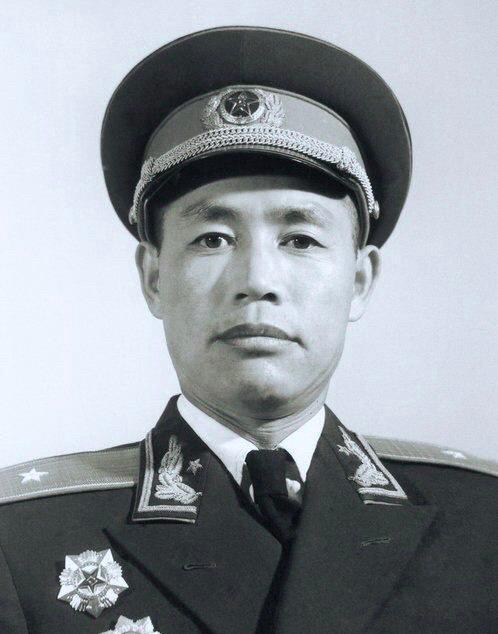
Deng Yue (1918.01.25--- 2000.04.10), alias Deng Shuquan and Deng Shujin. A native of Yunwushan Village, Shunhe Market Town, Macheng, Hubei Province. In 1930, he joined the Chinese Workers' and Peasants' Red Army, in 1931 he joined the Communist Youth League of China, and in 1936 he joined the Communist Party of China. During the Agrarian Revolutionary War, he successively served as a soldier and squad leader of the Red Fourth Army, and a platoon leader of the Red Army University Guard Platoon of the Red Fourth Front. He participated in the first to fifth anti-"encirclement and suppression" struggles in the revolutionary base areas of Eyu and Anhui, went to war in the west, established the Sichuan-Shaanxi base area, participated in the anti-three-way siege and anti-six-way siege of the Sichuan-Shaanxi revolutionary base area, and the Long March of the Red Fourth Front. During the War of Resistance Against Japanese Aggression, he entered yan'an Anti-Japanese University in 1937 to study, and later served as the captain of the first branch of the Anti-Japanese Military and Political University, the commander of the cadre battalion, the deputy chief of staff and chief of staff of the Fourth Military Subdistrict of the Ji'nan Military Region, and the deputy commander of the 10th Regiment of the New 4th Brigade of the 129th Division of the Eighth Route Army. He led his troops to participate in the "Hundred Regiments War", participated in the anti-"sweeping" struggle, and repeatedly smashed the "iron wall encirclement" of the Japanese army. In 1944, he entered the Central Party School of Yan'an. During the Liberation War, he successively served as deputy brigade commander of the 21st Brigade of the Northeast Democratic Coalition Army, deputy commander of the 7th Division of the 3rd Column, and commander of the 77th Division of the 3rd Column of the Northeast Field Army, and led his troops to participate in the battles of Xifeng Dayuan, Sanxia Jiangnan, Sibao Linjiang, Siping Defense, Liaoshen, Pingjin, Dujiang, Hengbao, the liberation of Hainan Island, and Hainan Island, and made meritorious contributions to the liberation of the Chinese people. After the founding of the People's Republic of China, he was the first to enter the Korean War in 1950, and successively served as the commander of the 118th Division of the 40th Army of the Chinese Volunteer Army, the deputy commander and chief of staff of the 40th Army. Yu Yunshan took the lead in firing the first shot of the War to Resist US Aggression and Aid Korea, led the 118th Division to annihilate the South Korean pseudo-Sixth Division at Wenjing and Liangshuidong, won the first battle abroad, participated in the first to fifth battles of the War to Resist US Aggression and Aid Korea and the defensive operations, and was awarded the Order of Freedom and Independence of the Democratic People's Republic of Korea of the Second Class and the Order of Freedom and Independence of the First Class. He graduated from the Basic Department of the Higher Military Academy in 1960, served as the commander of the 38th Army in 1961, the commander of the Brigade Garrison District in 1964, and later the deputy commander of the Shenyang Military Region and the Nanjing Military Region. He is a deputy to the Fifth National People's Congress and a deputy to the Ninth National Congress of the Communist Party of China. In 1955, he was awarded the rank of major general, and was awarded the Order of August 1, Second Class, the Order of Independence and Freedom, Second Class, and the Liberation Medal, First Class. In 1988, he was awarded the Medal of Merit of the Red Star, First Class.